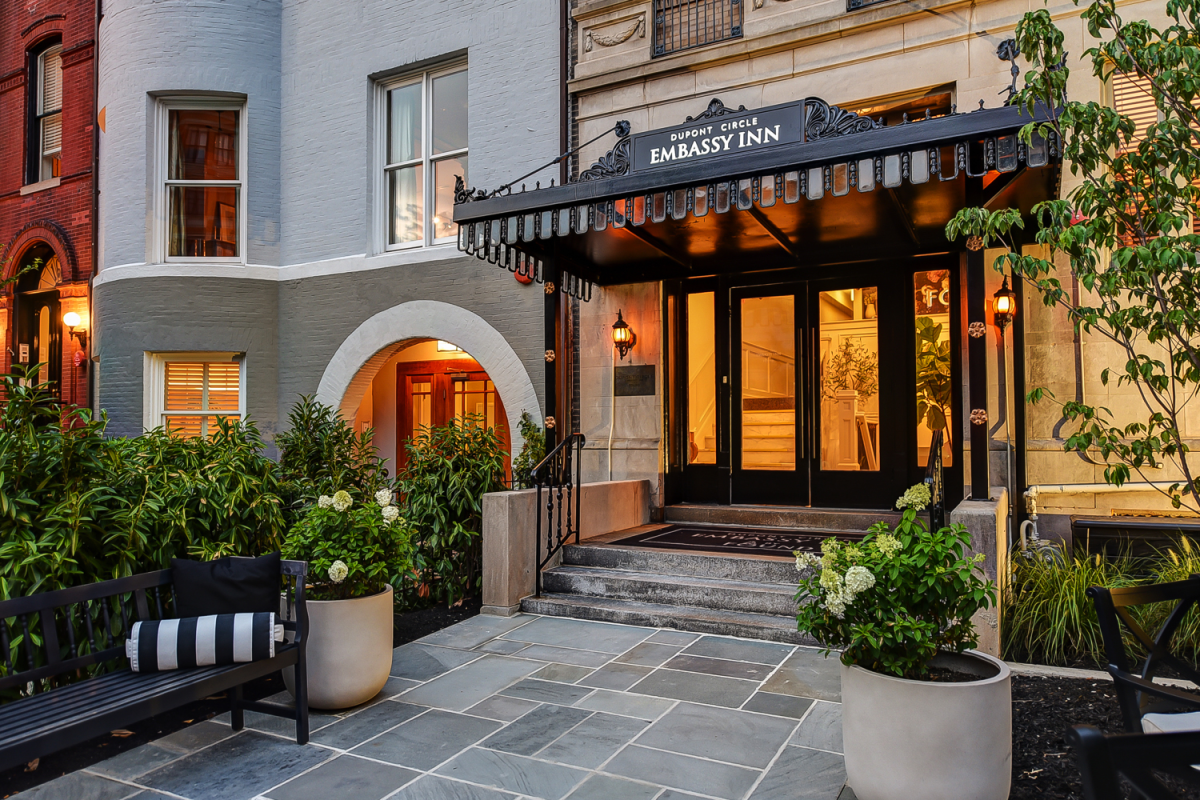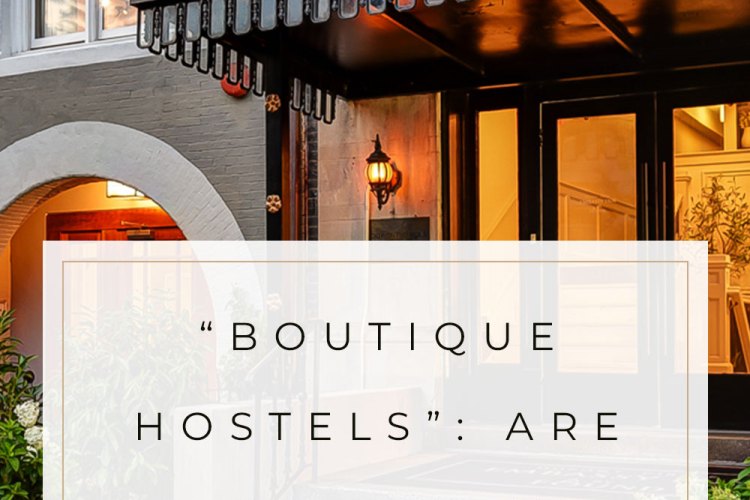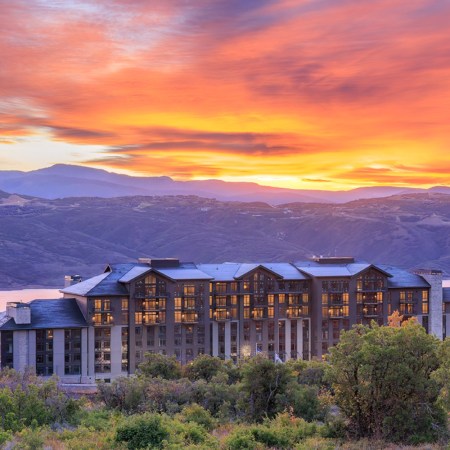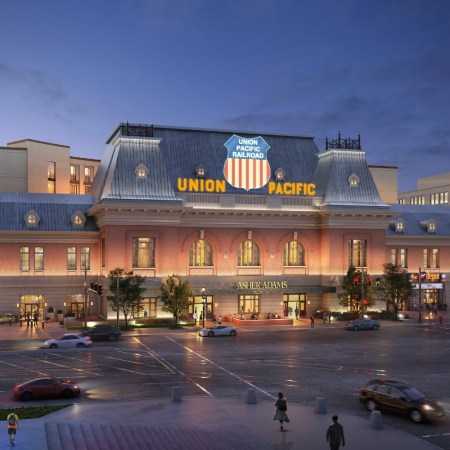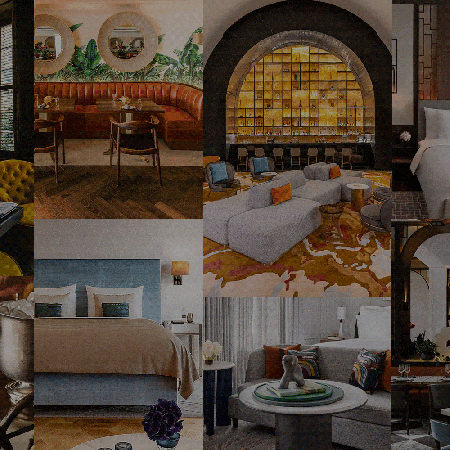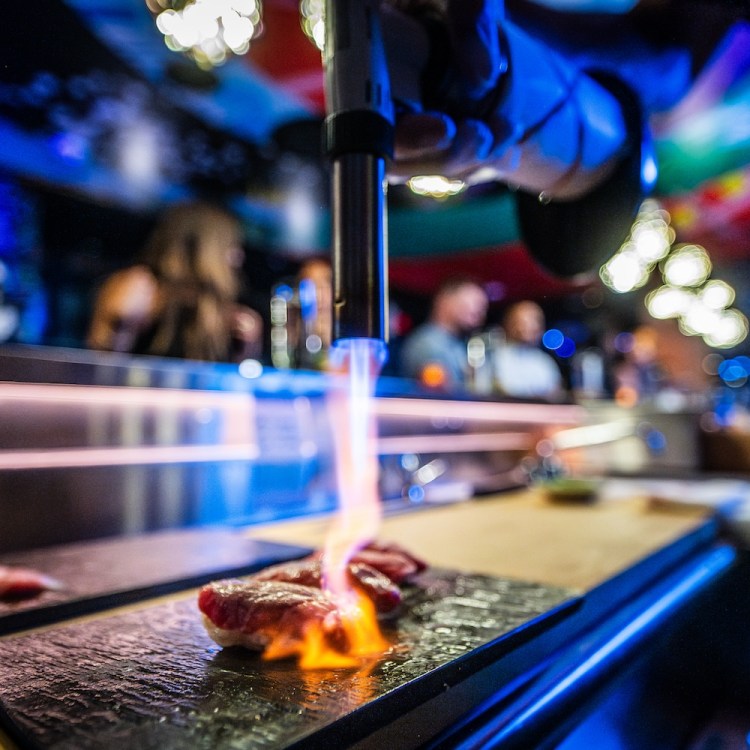This may sound crazy, but it might be time for you to try a night at a hostel. Hear us out.
Hostels have been getting a serious facelift of late, so much so that we’re deeming them worth a second look. Gone are the sheets of questionable cleanliness and rowdy backpackers knocking back beers in the common room till 2 a.m., replaced by hip, clean, community-focused hotels that offer a variety of room arrangements for a wide swath of travelers.
I remember my first time at a hostel, and also remember vowing to never stay at one again. I was a college student making my way up the east coast of Australia from Brisbane to Cairns with a few friends. We stayed at a number of hostels — one of which was jungle-themed, the walls painted to look like the inside of a Rainforest Cafe ripoff. The room, on the other hand, was a sickening bright pink, from the paint to the bed sheets. It also smelled strongly of mold.
Imagine my ever-so-slight hesitation when it came time to stay at the Dupont Circle Embassy Inn by FOUND, a new hostel-style hotel in DC that offers three tiers of accommodation based on your budget and preferences: private rooms, shared rooms and community rooms. What was originally built in 1910 as a walk-up apartment now plays host to the inn, which “exudes a historic neighborhood vibe that has attracted travelers from all over the world.”
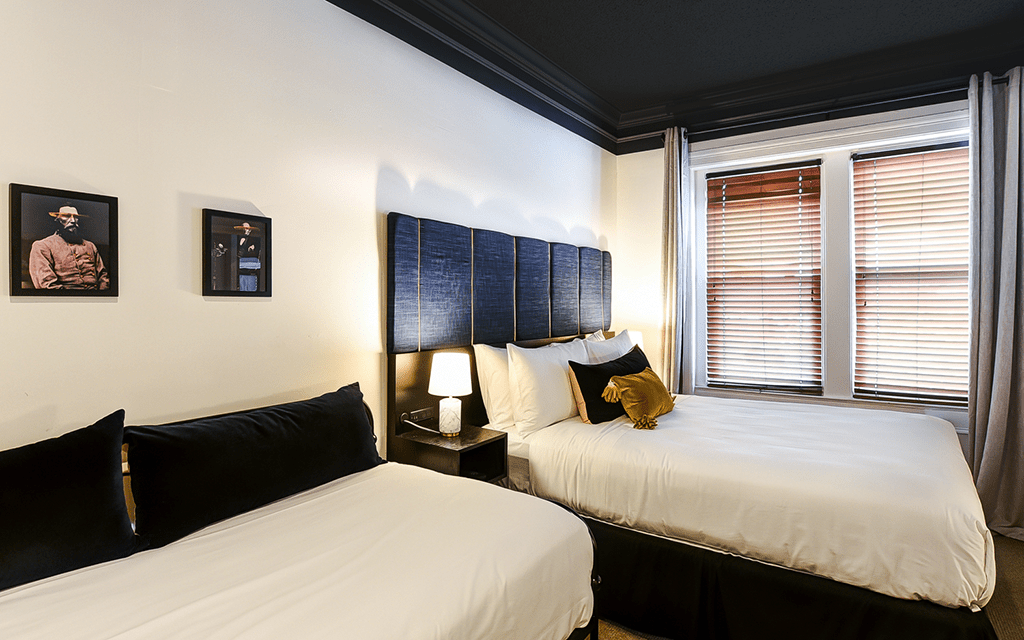
Walking in, I was honestly shocked that the space could be considered a hostel at all. A stylish, minimalist communal space was stocked with free coffee for the making, and all the rooms were equipped with flat-screen TVs in the rooms and free WiFi. The elevator landing on each floor is marked by bespoke neon signs shaped into presidential busts, a flashy-but-tasteful contrast to the historic brick building they’re housed in.
No, it’s not a five-star resort, and nor does it feel like one. But that’s kind of the point. Rather, it’s an affordable guesthouse aimed at upwardly mobile young professionals who want more stylish gigs than, say, the Best Western or Holiday Inn.
“It’s astounding how much the hostel industry has transformed in the last five years alone,” Feargal Mooney, former chief executive of Hostelworld, tells InsideHook. “Today, we’re seeing luxury hostel accommodations that are offering the perfect balance of privacy, amenities and social activities.”
A recent report by Hostelworld highlights those transformations, showing that while hostels once held the reputation of being an easy and cheap solution for those traveling on a tight budget, those associations are now shifting, especially for young travelers. Almost one-fifth of the Generation Z’ers surveyed rank social space as the most important consideration when choosing where to stay. Gen Z is expecting more from their stay than just a bunk bed, though, with a 19% increase in the importance of free activities and amenities, and a whopping 44% increase in the importance of decor.
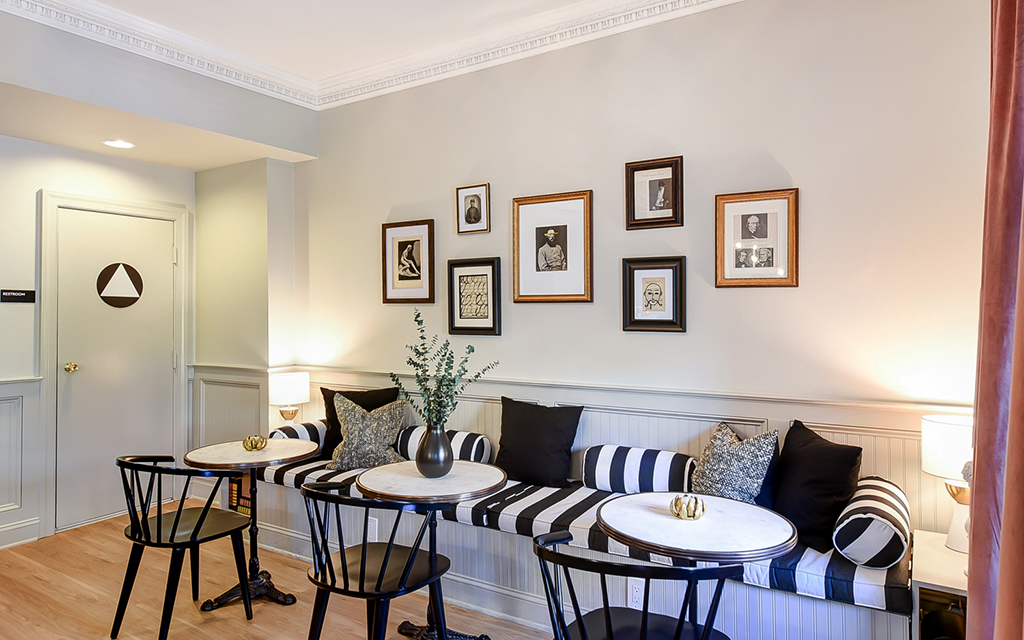
Some have even taken to calling these more upscale hostels “poshtels,” with Lonely Planet saying they combine “the style and comfort of a boutique hotel with the price and sensibilities of a hostel.” These fancier digs offer an emphasis on modish design and spacious, clean rooms as well as extra perks like cool bars, top-notch restaurants and perhaps even a rooftop lounge or pool … all at a fraction of the price you’d pay for a hotel with similar amenities.
Popular chains like Freehand, Generator and FOUND are leading the “poshtel” charge in cities around America and abroad, gaining acclaim for creating reliably hip atmospheres and playing host to bars and restaurants so popular they’ve become tourist destinations in themselves.
Perhaps at the front of the pack is Freehand, recently acquired by Generator in October for a cool $400 million. Making their 2012 debut in Miami, Freehand didn’t expand their offerings to a second city, Chicago, until 2015, but has since opened a location in Los Angeles and most recently New York City at the beginning of this year. Freehand’s recent purchase by Generator puts their global property tally at 18, with successful locations in European cities like Amsterdam, Berlin and Copenhagen.
“With Generator’s storied success in Europe and Freehand’s brand recognition in the U.S, we expect this merger to set a new standard for this evolving area of hospitality,” Generator CEO Alastair Thomann told Forbes.
So, can you guess where the next Generator is set to open? If you guessed Washington, DC, you might be biased, but you’d also be right. Europe’s fastest growing boutique accommodation brand has set its sights on the crossroads of Adams Morgan and Dupont Circle for a 2020 opening — giving you just enough time to get hip to the trend before their arrival.
This article was featured in the InsideHook DC newsletter. Sign up now for more from the Beltway.
